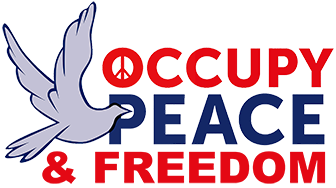April 23, 2021 9.55am EDT
By the mid-1990s, it was clear to the world that Somalia had become Africa’s first failed post-colonial state. But this vast country of just 10 million people had had a glorious history before this calamity. It was the first to enjoy a democratic transfer of power on the continent, in 1964 and 1967.
In the 1960s, Somalia developed a reputation for running the most democratic elections on the continent. At the time the continent was mired in dictatorships, suffering under bloody military coups and lumbering under single party rule.
This glorious history is little known. Better known is the chaos of the last 30 years. In these years, Somalia has endured the most retrogressive and violent civil war engineered by one of the most sectarian African political elite in the continent today.
Is there any chance that this might change? Can the Somali people rise from the ashes?
How The Conversation is different: All our authors are experts.
I believe not, unless two of the key drivers to the Somali disaster are understood – and acted on. The first is that the political and security order – which numerous foreign actors have been investing in – has produced marginal benefits for ordinary people. And it has failed to defeat Al-Shabaab.
Second, this order is built on the reification of a divisive apartheid-like political formula based on ethnic lines.
Indigenous revolution snuffed
In 2006, after a decade-and-a-half of cruel civil war, the Union of Islamic Courts, a home grown alliance of religious leaders, terminated 15 years of warlords’ terror and tyranny. They pacified Mogadishu and surrounding areas and were about to set up local administration for the city and the surrounding settlements.
But the initiative was short lived. The international community, led by the US, reversed this local initiative, and empowered a government dominated by warlords.
US (and foreign) influence was further consolidated after 2008 – the year Washington listed Al-Shabaab as a terrorist organisation. Since then, the US and its allies have spent billions of dollars on illusive security and superficial development that has failed to improve the capacity of Somalis to take charge of their future.
In addition, they have endorsed a tribal-based federal system advanced by the sectarian factions of the Somali political elite. This political cocktail has produced a context in which violence has become part of the population’s daily life under the shadow of a thoroughly corrupt and hopelessly inept government.
The African Union force in Somalia, fully financed by the US and the European Union, claims to have pushed Al-Shabaab from Mogadishu and other major cities. But it has failed to defeat the terrorist organisation. This is due to the conventional warfare strategy it has adopted as well as its inability to mobilise the local population for self-defence.
As a result, Al-Shabaab, which has about 5,000 combatants, controls most rural areas. The group efficiently collects ransom (taxes) from all businesses, most notably in the capital city. This is due to the absence of a strong and effective police force in the capital.
Al-Shabaab’s resilience is undergirded by the international community’s disorganised efforts at rebuilding a unified and integrated Somali defence and police forces.

Recent Comments